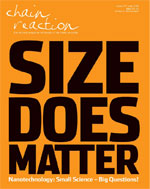The Australian newspaper reports on the worst damage to the Great Barrier reef ever caused by a ship. The 100,000 tonne coal carrier the Shen Neh 1 "pulverised" a 3km section of the reef in the 9 days it was stranded on the coral. Now scientists warn that anti-fouling paint from the ship, left everywhere they have looked so far, could cause considerable long-term damage to the reef. FOEA asks, would the reef's recovery be further set back if this were anti-bacterial nano-paint, and what action is required to ensure that manufactured nanomaterials are not posing unacceptable risks to our marine environment?






